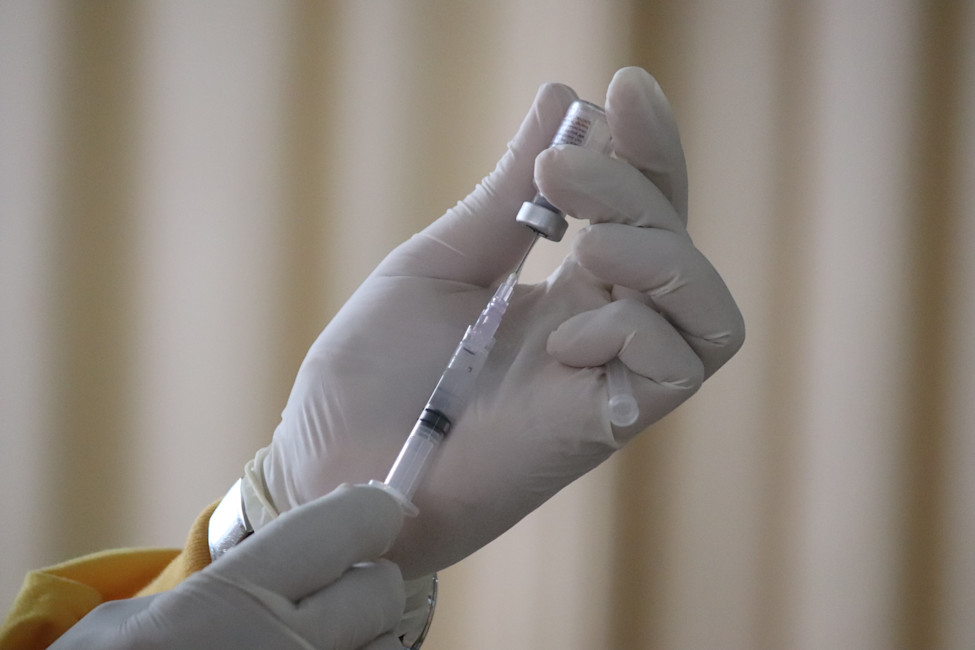
Statement Summary
Investors representing US$3 trillion in assets raised concerns that antibiotic resistance has risen to dangerously high levels, with AMR causing 700,000 deaths annually.
The rate of antibiotic resistance has risen to dangerously high levels in all parts of the world, and this threat is continuing at pace.
In 2017, scientists found that a gene allowing resistant bacteria to move from animals to humans had spread to over 30 countries; while in the US a superbug, which is resistant to all 26 available antibiotics, was reported to have killed a woman in Nevada. These are just a few examples of the emergence of antimicrobial resistance (AMR), estimated to be responsible for 700,000 deaths around the world each year. This is a trend that the US Centers for Disease Control and Prevention (CDC) considers one of the world’s “most serious health threats”.
Political attention to this issue is escalating. UK Chief Medical Officer, Sally Davies, has warned that we may face the ‘end of modern medicine’ if we fail to overcome the AMR challenge. Through industry press, former Belgian PM, Mark Eyskens, has urged the European Union to take more decisive action to prevent a global health crisis. Following this, international governments, the United Nations and multi-lateral institutions met in Berlin in October 2017 to identify gaps in tackling the development and spread of AMR, and to commit to a concerted and tangible actionplan.
We believe that companies and investors have a key role to play in driving progress forward on this crucial issue. With this statement, we aim to demonstrate investor support for antibiotics stewardship policies while helping companies to use antibiotics in a safer way.
FAIRR continues to work on this, and launched a new AMR investor letter in 2024.

Investor Statement
We, the undersigned investors, recognise the routine non-therapeutic use of antibiotics in livestock production as a major risk to public health.
Worldwide, most antibiotics are used in farm animal production systems, often to promote growth and to prevent the spread of disease among animals housed in unsanitary conditions and in close confinement. In the US, an estimated 75% of antibiotics are being used on farm animals [1], 70% in the European Union (EU), and 45% in the UK [2]. This overuse of antibiotics in livestock production is recognised by the World Health Organisation as an important factor in the emergence of antimicrobial resistance (AMR) worldwide [3].
The global regulatory landscape is moving to phase out the routine non-therapeutic use, and consumers, civil society organisations and the media are increasingly scrutinising corporate practice on this issue. Companies that fail to act are likely to face significant impacts on their reputation and brand, threatening sales and profits [4].
Not only does AMR present a material risk for food companies, but it is also a systemic risk across multiple sectors, including the pharmaceutical, healthcare and insurance industries. Immediate action is required to preserve the efficacy of antibiotics against diseases in both humans and animals. We, therefore, view reform of the non-therapeutic use of antibiotics in livestock production as both necessary for public health, and essential for risk mitigation and long-term value creation. We also consider it material when evaluating a company’s prospects in line with our portfolios.
Thus, we support the establishment of a comprehensive antibiotics policy that includes clear timelines for phasing out routine, non-therapeutic use of antibiotics across all livestock, seafood and poultry supply chains. We enclose a best practice policy on antibiotics stewardship, which has been developed in consultation with leading industry and issue experts to provide guidance to food companies, including both meat producers and purchasers (such as retailers and restaurants), in the development of their individual policies.
This investor statement is coordinated by the FAIRR Initiative.
Investor Signatories
This statement is currently supported by 75 investor signatories collectively managing over $3 trillion of assets.
Aviva Investors
Interfaith Center on Corporate Responsibility
Ostrum Asset Management
Aegon Asset Management
BMO Global Asset Management
Robeco
Resona Bank, Ltd.
Bank J. Safra Sarasin
Achmea Investment Management
CANDRIAM Investors Group
University of California, Office of the CIO of the Regents
ACTIAM
Skandia
Kempen Capital Management
Fidante Partners
Raiffeisen Capital Management
HESTA
Hermes Investment Management
Strathclyde Pension Fund
Addenda Capital
Coller Capital
Calvert Research and Management
Mirova
Impax Asset Management
Trilogy Global Advisors
Dana Investment Advisors
NEI Investments
Öhman
Triodos Investment Management
Walden Asset Management
EdenTree Investment Management
Solaris Investment Management
Trillium Asset Management
Boston Common Asset Management
Central Finance Board Methodist Church and Epworth Investment Management
Domini Impact Investments LLC
Australian Ethical
The Sustainability Group of Loring, Wolcott & Coolidge
Bridges Fund Management
UFCW Pension Plan for Employees
Everence and the Praxis Mutual Funds
Christian Super
Castlefield Partners
Church of Sweden
Middletown Works Health Care VEBA
Zevin Asset Management
Azzad Asset Management
Green Century Capital Management
Friends Fiduciary Corporation
Sophia School Corporation
Sonen Capital
Southern Pastures
WHEB Asset Management
Sisters of St. Francis of Philadelphia
Mennonite Education Agency
Civic Capital Group, LLC
Quantum Financial Planning LLC
EBG Investment Solutions AG
Cruelty Free Super
JMG Foundation
Trinity Health Inc.
The LankellyChase Foundation
As You Sow
Shareholder Association for Research and Education
Starboard Wealth Planners
Miller Howard Investments, Inc.
JLens Investor Network
Northwest Coalition for Responsible Investment
Dalhousie University
Confrapar administração de recursos s/a
Seventh Generation Interfaith Inc.
Congregation of St. Basil
Evangelische Bank eG
Socially Responsible Investment Coalition